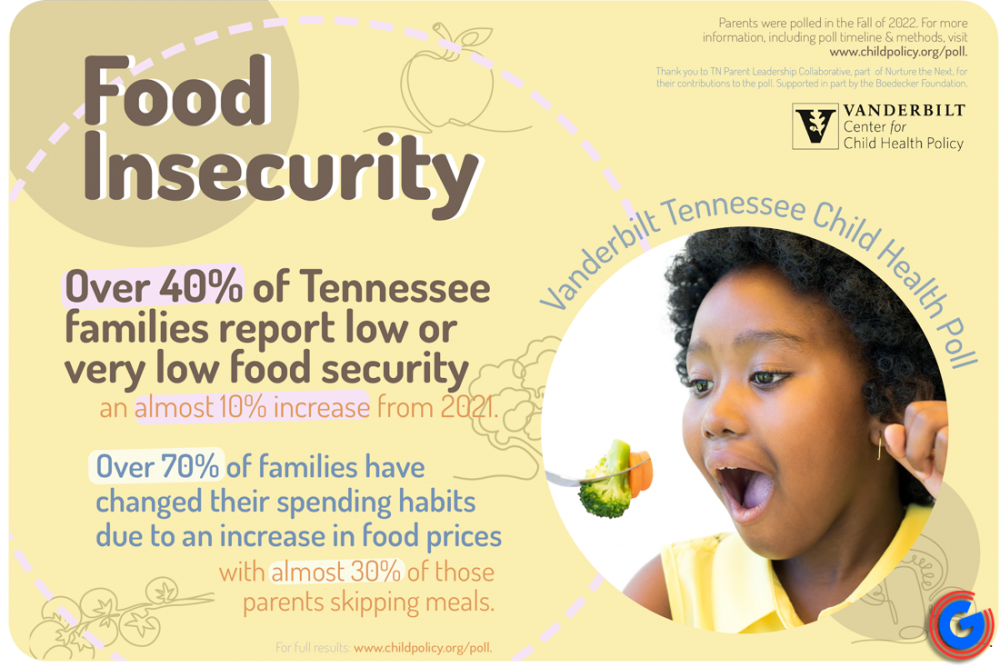An increasing number of Tennessee parents are reporting their families are food insecure. Up more than 30% in just one year, 41.2% of Tennessee parents reported low or very low food security compared to 31.3% last year.
The latest release of the poll of more than 1,000 Tennessee parents by the Vanderbilt Center for Child Health Policy asked parents a series of questions focused on food security and changes in food spending due to increases in food prices. Food security was evaluated using a standardized questionnaire from the U.S. Department of Agriculture.
“This significant increase in low food security is alarming for the health of Tennessee children, who rely on adequate nutrition to grow and develop to their full potential,” said Cristin Fritz, MD, MPH, assistant professor of Pediatrics at Monroe Carell Jr. Children’s Hospital at Vanderbilt and member of the Center. “During the pandemic, Congress acted to provide additional supports for families. Now that these supports have ended, families are struggling to afford enough food.”
Previous polls from the Center have shown 9 in 10 Tennessee parents support free school lunch for all children.
Rutherford County, TN - In Rutherford County, the food insecurity rate for children was last reported to be 12.3%, according to FeedingAmerica.org numbers from 2020, their most recent year for data to be released. The organization also reported the food insecure population of children in Rutherford County adds up to 9,840 kids. Those numbers are down when compared to 2017 when the childhood food insecurity rate equaled 15.3%.
The latest statistics from Feeding America show that children in neighboring Nashville and Davidson County have a food insecurity rate of 19.1%. The food insecure rate of children in Davidson County was last reported to be 27,420.
More on the Vanderbilt Child Health Report - Across the three grand divisions of the state, more parents in East (45%) and West Tennessee (44%) reported low or very low food security than parents in Middle Tennessee (38%). There are also notable differences by race. More than half, 51%, of Black parents in Tennessee report low or very low food security compared to 38% of white parents.
Despite the increase in reported low food security and change in food spending habits, over 50% of all parents said they did not receive any type of assistance over the last week or the last 12 months.
“Growing up in a household that experiences food insecurity puts children at a higher risk of developing physical and mental health issues such as obesity, hypertension, diabetes, anxiety and depression,” said Fritz.
This year’s poll also explored food spending habits due to the rising cost of groceries seen nationally in recent months. Over 70% of Tennessee parents report that their family changed their food spending habits due to higher food prices. Of that 70%, 29% of those families who changed their food spending habits said they changed their spending in part by skipping meals.
“Hunger among Tennessee children is a solvable problem,” said Stephen Patrick, MD, MPH, director of the Vanderbilt Center for Child Health Policy. “The rapid increase in food insecurity among Tennessee families with children should be a call to action for all of us. No child should go hungry in our state.”
The poll is conducted annually in the fall and explores a variety of issues that impact Tennessee parents and their children. This year we polled parents on food insecurity and insurance status as well as mental health and firearm safety. The poll is funded in part by a grant from the Boedecker Foundation.






